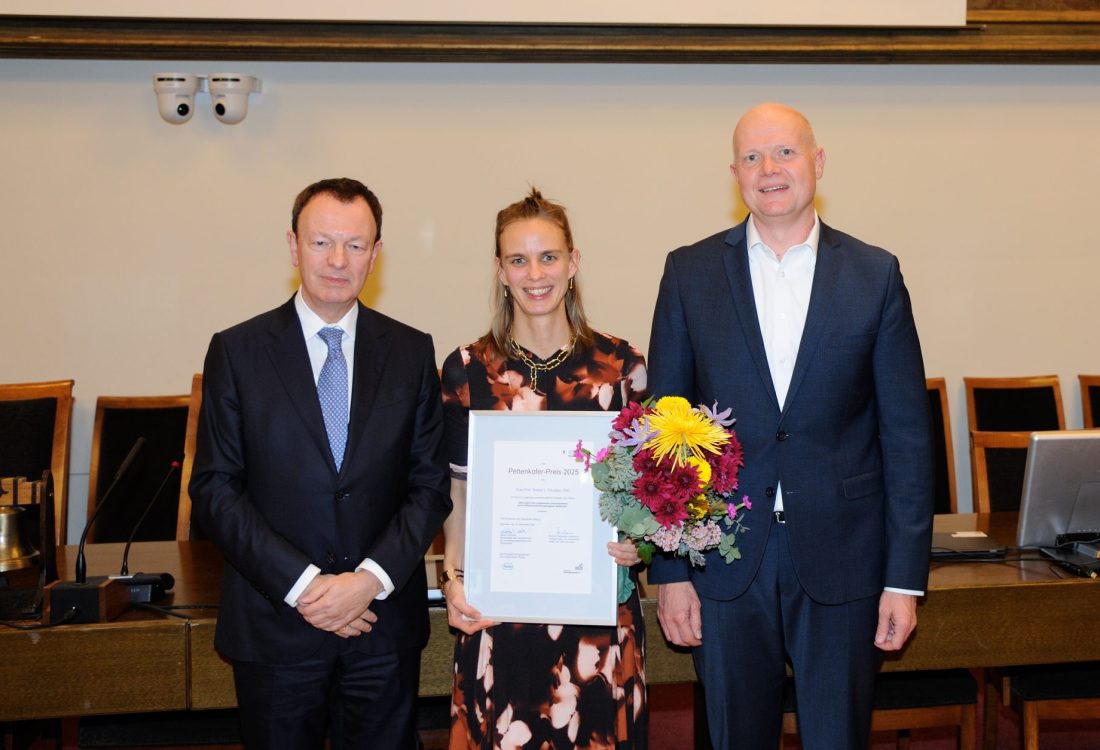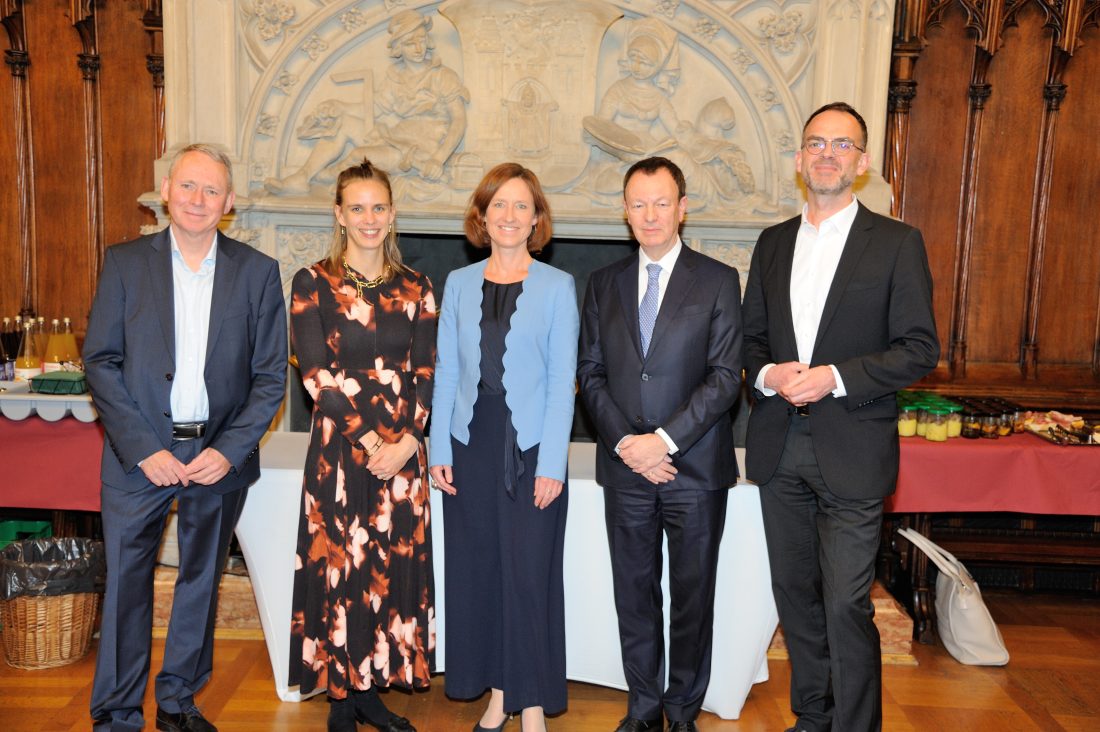2025 Pettenkofer Prize awarded to Teresa Thurston

From left: Prof. Dr. Sebastian Suerbaum (Max von Pettenkofer Institute), award winner Prof. Teresa Thurston, City Director Stefan Eckhardt (Chairman of the Board of Trustees). Photo credit: Heribert Mühldorfer
The Pettenkofer Prize is awarded annually by the Pettenkofer Foundation, which is administered by the City of Munich. The Foundation promotes science and research in the field of scientific and practical hygiene, medical microbiology and virology. On 10th November 2025, Teresa Thurston was awarded the prize for her groundbreaking work on this year’s competition theme, “Modulation of the innate immune system by effector molecules of pathogenic bacteria”.
During the ceremony, Teresa presented a lecture on her award-winning work, which has uncovered novel functions and molecular mechanisms of virulence proteins, termed effectors, from diverse pathogenic bacteria. The award recognised her contributions to identifying how different bacterial effectors, which are delivered into host cells, impact the outcome of infection. Notable examples of her groups work include elucidating how the Salmonella effector SteE promotes an anti-inflammatory macrophage state that is beneficial to the bacteria. SteE functions via a new mechanism, known as kinase reprogramming, whereby SteE forces the host serine/threonine kinase, GSK3, to phosphorylate non-canonical substrates on tyrosine residues. Her group has also studied how an effector molecule from Burkholderia, called TssM, uses its ubiquitin esterase activity to reverse the non-canonical ubiquitylation of bacterial lipopolysaccharide, describing how this activity blocks the anticipated host immune responses.
About this prize, Teresa said “I am deeply honoured to receive this prize, and I want to take this opportunity to acknowledge and thank everyone in my group as well as our collaborators. They are the ones who not only make the work possible, but who also make the journey so rewarding. It is truly wonderful to see their breakthroughs, dedication and teamwork recognised in this way.”
After her lecture, Professor Sebastian Suerbaum, a member of the board of trustees, who also gave the laudatory speech, presented Teresa with her award certificate and prize. The prize this year was sponsored by Roche, who are committed to promoting scientific research and the professional development of talented individuals.

From left: Dieter Heindl (Roche), award winner Prof. Teresa Thurston, Dr. Julia Riedlinger (Roche), Prof. Dr. Sebastian Suerbaum (Max von Pettenkofer Institute), Paul Wiggermann (Roche). Photo credit: Heribert Mühldorfer
Explore more
Thurston Lab
Elucidating the mechanisms by which intracellular bacteria overcome the host’s innate immune response.
Infection and Immunity
Several Dunn School groups use a range of approaches to investigate antigen presentation and immune regulation during health and disease and study the mechanisms that enable bacterial and viral pathogens to invade and proliferate inside their hosts.
More news
The latest news stories and research highlights from the Dunn School.